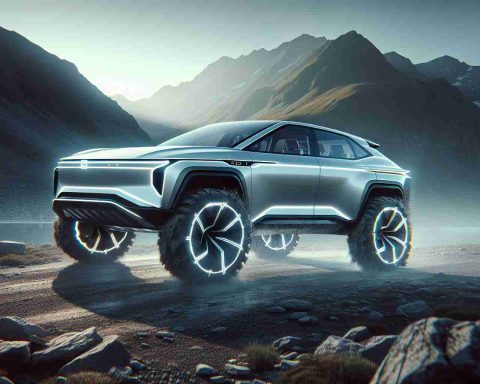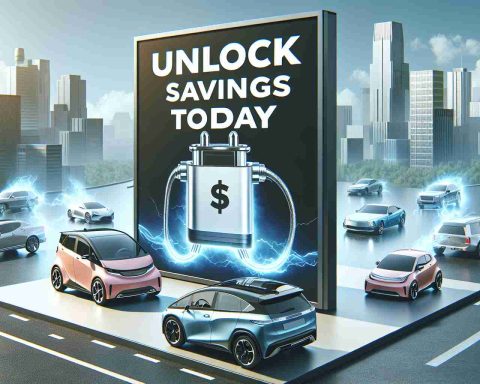As the newly elected president, Donald Trump faces significant challenges regarding the future of electric vehicles (EVs) in America. The move to eliminate the federal tax credit of up to $7,500 for both new and used EVs could hinder development in the critical mineral supply chain, particularly in lithium and graphite production.
The Zero Emission Transportation Association (ZETA), led by Albert Gore, who is the son of a former presidential candidate, warns that this decision could be detrimental to U.S. industries looking to evolve. Gore highlighted that the existing tax incentives are crucial for stimulating demand within the critical minerals sector that Trump aims to strengthen. He noted that, under current rules, graphite does not impact EV credit eligibility until 2027, allowing automakers more time to establish their own sources while still relying on imports, particularly from China.
This situation is critical as China has a significant lead in the production of critical minerals, with a 15-year advantage in the market. Gore argued that maintaining the tax credit would bolster investment in projects essential for sourcing materials like cobalt and graphite. Automakers like GM are also advocating for the retention of the tax credit, fearing that any shifts in federal support could force them to reconsider their EV initiatives.
Trump’s consideration of reallocating funds intended for EV infrastructure to military supply chains raises further concerns about the future trajectory of the electric vehicle industry.
The Future of Electric Vehicles Under Trump’s Leadership: Challenges and Opportunities
The future of electric vehicles (EVs) in the United States is at a critical juncture, particularly under the new administration led by President Donald Trump. As traditional mediums of transportation begin to pivot towards more sustainable options, the potential elimination of federal tax credits for EVs poses notable challenges.
Overview of the Federal Tax Credit Impact
The federal tax credit, which currently allows consumers to claim up to $7,500 for purchasing new and used electric vehicles, has been a significant incentive boosting EV adoption. Ending this program could stifle not only consumer demand but also hinder advancements in the supply chains necessary for the production of critical minerals essential for EV batteries.
# Pros and Cons of Eliminating the Tax Credit
Pros:
– Budget Reallocation: Funds saved from eliminating the credit could be redirected towards sectors such as military supply chains, potentially enhancing national security.
– Market-Driven Forces: Some argue that the EV market could thrive independently as technology improves and consumer interest grows, thus reducing the need for government incentives.
Cons:
– Decreased Demand: Removal of the tax credit may lead to higher purchase prices for EVs, thus dampening consumer interest and slowing market growth.
– Critical Minerals Supply Chain: A decline in EV sales could impact investment and innovation within the U.S. critical minerals sector, particularly vital materials like lithium, cobalt, and graphite, putting U.S. manufacturers at a disadvantage compared to countries like China, which currently leads in this domain.
Insights into Industry Reactions
The Zero Emission Transportation Association (ZETA) has expressed strong opposition to the potential policy change, suggesting that Trump should reconsider the elimination of tax credits. ZETA’s leadership highlights that without these incentives, U.S. industries may struggle to transition, particularly in a market where competition is fierce. Support from automotive giants, including GM, emphasizes the importance of maintaining these credits to sustain investments in electric vehicle innovation.
Emerging Trends and Innovations in EVs
Despite potential policy hurdles, the EV industry continues to innovate. Significant trends include:
– Advancements in Battery Technology: New technologies are being developed to improve battery efficiency and reduce production costs, making EVs more accessible over time.
– Sustainability Commitments: Many automakers are committing to sustainable practices, such as sourcing materials responsibly and investing in recycling technologies for old batteries.
– Expanding Infrastructure: While government funding is uncertain, private sector investments in charging infrastructure continue to grow, facilitating the transition to electric vehicles.
Market Predictions and Future Outlook
Experts predict that while federal support may fluctuate, the long-term trajectory of the EV market remains positive. As global pressure for sustainability increases, along with improved technology, consumer acceptance of EVs is expected to grow. Proactive measures—whether from the government or the private sector—will be essential in ensuring that U.S. technologies remain competitive in an increasingly globalized marketplace.
Conclusion
The fate of electric vehicles in the U.S. faces uncertainty with the potential repeal of significant tax incentives. However, as innovative technologies and industry advocacy persist, the movement toward sustainable transportation continues to evolve. For more information on the state of the electric vehicle market and emerging trends, visit ZETA’s official website.








